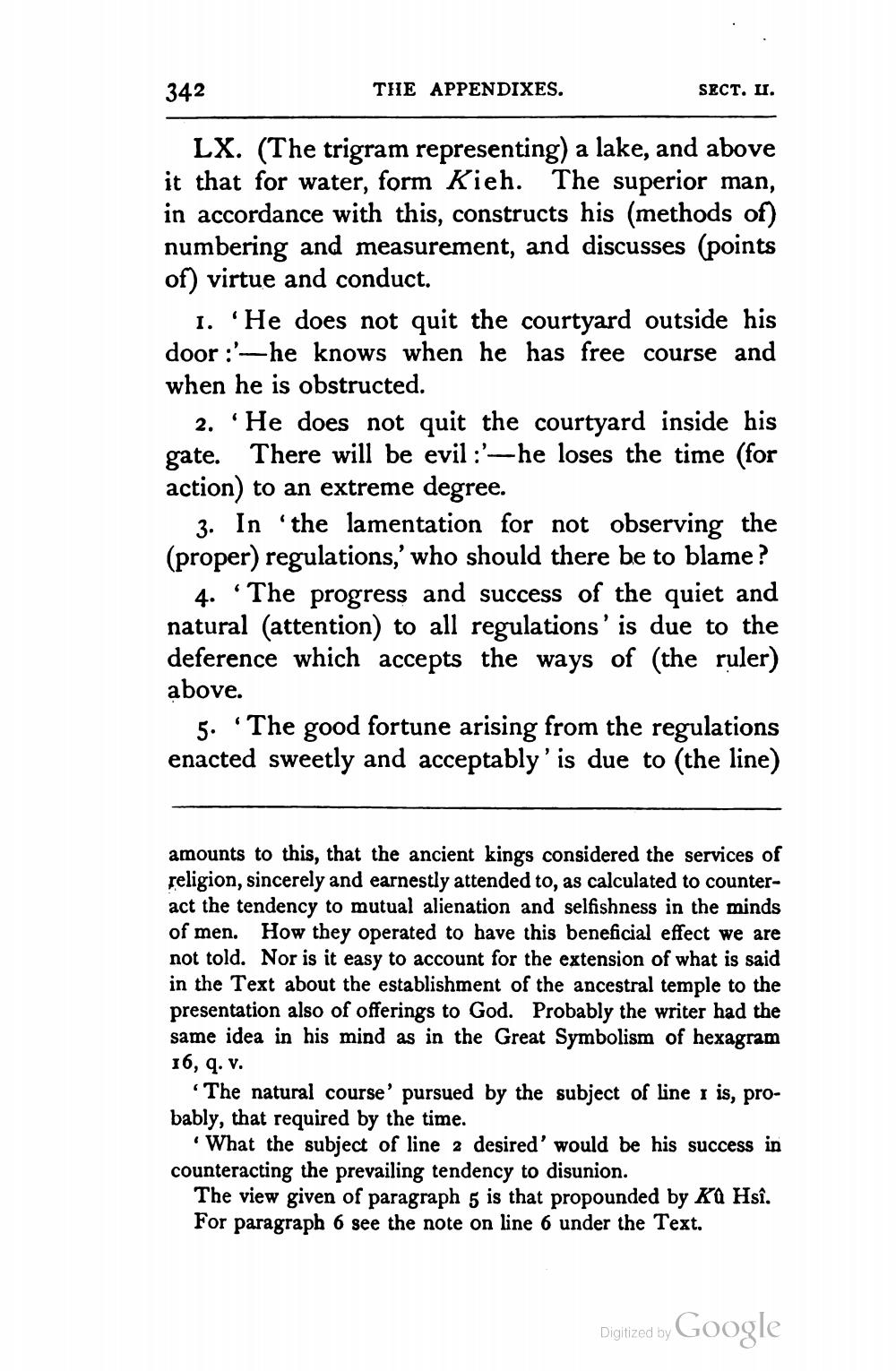________________
342
THE APPENDIXES.
SECT. u.
LX. (The trigram representing) a lake, and above it that for water, form Kieh. The superior man, in accordance with this, constructs his methods of) numbering and measurement, and discusses (points of) virtue and conduct.
1. 'He does not quit the courtyard outside his door :'-he knows when he has free course and when he is obstructed.
2. 'He does not quit the courtyard inside his gate. There will be evil :'-he loses the time (for action) to an extreme degree.
3. In 'the lamentation for not observing the (proper) regulations,' who should there be to blame?
4. “The progress and success of the quiet and natural (attention to all regulations' is due to the deference which accepts the ways of (the ruler) above.
5. The good fortune arising from the regulations enacted sweetly and acceptably' is due to the line)
amounts to this, that the ancient kings considered the services of religion, sincerely and earnestly attended to, as calculated to counteract the tendency to mutual alienation and selfishness in the minds of men. How they operated to have this beneficial effect we are not told. Nor is it easy to account for the extension of what is said in the Text about the establishment of the ancestral temple to the presentation also of offerings to God. Probably the writer had the same idea in his mind as in the Great Symbolism of hexagram 16, q. v.
The natural course' pursued by the subject of line r is, probably, that required by the time.
What the subject of line 2 desired' would be his success in counteracting the prevailing tendency to disunion.
The view given of paragraph 5 is that propounded by Ků Hs. For paragraph 6 see the note on line 6 under the Text.
Digitized by Google




